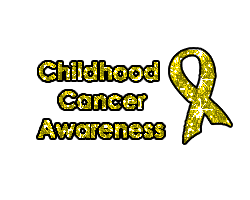A team of St. Jude researchers has shown in laboratory studies that a drug called interferon-gamma (IFN-gamma) is a potentially effective and practical way to sensitize cells of neuroblastoma tumors to chemotherapy. The finding suggests that it is worthwhile to continue these studies with the aim of eventually doing clinical trials with children. Neuroblastoma is a cancer of infants and young children in which cells resemble very primitive developing nerve cells found in an embryo or fetus.
IFN-gamma was already known to cause cancer cells to undergo apoptosis (cell suicide) by stimulating them to make a molecule called caspase-8, according to Jill Lahti, PhD, associate member of Genetics & Tumor Cell Biology. However, Lahti's team took that understanding further by showing that INF—gamma appears to be effective in doses appropriate for use in children. Caspase-8 triggers apoptosis in response to chemotherapy drugs that attack those cells. A report on this work appears in the October issue of Biochemica Biophysica Acta—Molecular Cell Research.
The St. Jude team exposed a series of different cultures of neuroblastoma cells to IFN-gamma for five-minutes. The single dose treatment triggered caspase-8 production in all cells that previously were not producing this molecule; and in three out of six neuroblastoma cultures that were already producing high quantities of caspase-8. The increase in caspase-8 occurred within 16 hours and lasted for up to nine days. And most importantly, the treatment made the cells almost three times more sensitive to the chemotherapy drug doxorubicin.
The investigators also used a technique called gene microarray analysis to identify genes that were affected by INF-gamma.
"Altered activity of these genes might further sensitize neuroblastoma cells to chemotherapy drugs," Lahti said. "So we plan to study them to see if we can further improve treatments for neuroblastoma."
Other St. Jude authors include co-first authors Tanya Tekautz (formerly of St. Jude Hematology-Oncology, now at Cleveland Clinic) and Kejin Zhu (Genetics and Tumor Cell Biology), who contributed equally to this work, Jose Grenet and Vincent Kidd (Genetics and Tumor Cell Biology), and Deepak Kaushal (formerly of St. Jude's Hartwell Center, now at Tulane University).
November 2006
****This article is from the St. Judes website, here is the direct link to the story : Hope for NB


2 comments:
This is great! They learn so many new things everyday! It amazes me with as much as we know though how far we still have to go! You would think with all the knowledge we have we would have found a cure for the common flu or cold by now at least! LOL
Hugs- T
oh my god it amazes me the breakthroughs that we are seeing these days. funny that i havent heard anything about this on the news though. this is huge!
Post a Comment